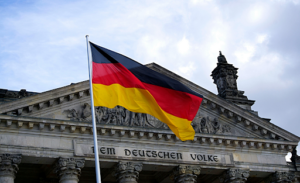Europe has achieved much success in democracy, government regulation for the public welfare, and in setting legislative trends in a wide range of areas. This has been especially true in the realm of online gambling, rendering it the world-leading region for the industry. Countries like France and Italy have maintained gambling all the way since the Renaissance and countries in the continent approach the ill social effects of gambling with a pragmatic approach. This has led Europe emerging as the main pioneer and earliest adopter of iGaming legalization and regulation. Today we will talk about the state of European iGaming markets.
Cultural influence
The region, in particular the EU, is well-known for exporting its values to the rest of the world and projecting its perspectives on legislative issues. The first online casinos popped up in the 1990s in Europe, nearly a decade before the first legalized casino began operation in the United States – in 2003. iGaming meanwhile still remains for the most part illegal in Asia, the Middle East, and has only just recently experienced a wave of widespread legalization in Latin America.
Thus, this is yet another area in which Europe has profoundly impacted the world, reminiscent of other fields of law it impacted such issues like the death penalty, climate change, and proportional representation democracy. Europe’s current approach to gambling is that while it poses risks such as money laundering, the financing of terrorism, and gambling addiction, Europe’s communitarian and pro-regulation values have given it the confidence to take advantage of the revenue and jobs gambling provides while curtailing the downside of it.
Europeans are also quite fond of games like:
- Poker
- Soccer betting
- European roulette
- Crash games like Mine Island game
- Blackjack
- Slingo
In light of the rise of cryptocurrency and VPNs on the Internet, it has also proven extremely difficult to force observation of gambling laws, and thus, European countries have deemed legalization and regulation the best way to handle it. As of 2023, 250 billion dollars was bet on sports, about half of that on soccer.
Legislation systems
Much of Europe is part of the European Union whose goal it is to treat Europe as a polity of shared values, laws, and a common market. This is intended to facilitate commerce and prevent the tensions that evoked atrocities in the early 20th century. While many moral issues are handled at the level of the European Commission and Parliament, gambling laws, regulation, and taxation are handled at the national level. Northern Europe tends to enact stricter laws with a focus on consumer safety while the South is more concentrated on growth, featuring laxer laws.
Despite that, the EU plays a smaller role than on many issues when it comes to gambling, it still pushes member states to stiffen their systems so as to make any money laundering difficult to do and reduce the incidence of gambling addiction. However, there has been difficulty in achieving a unified system and preventing gamblers and online casinos from turning to jurisdictions with laxer laws that charge minimal taxes and fees. This has caused tension, whereas on most issues the EU strives for a maximally unified, common market.
Offshore casinos are happy to accept gamblers residing in countries where gambling is less advantageous for them. However, gambling laws and punitive methods are tightly intertwined with countries’ traditional ethical approaches to gambling which vary quite a bit. Thus, it has been difficult for a unified system to be built.
National markets tend to break down into liberalized markets, prohibitive markets, and partially regulated markets. Many nations accept licenses from other nations, others require an additional license be obtained directly from them, while others don’t issue licenses, allowing only the state to run most forms of gambling. The intent of state-run monopolies controlling fields of gambling is to achieve maximal limitation of social ills, while liberalized nations focus more on the profits and revenue.
We are going to be breaking down European countries one by one.
Liberalized markets
These countries allow private operators to take advantage of their markets as well as help develop them.
Germany
This nation had a big patchy grey economy legislated by individual states before the country finally just legalized gambling nationwide in 2021. The country uses a 5.3% stake tax. Regulated by the Gemeinsame Glücksspielbehörde der Länder, the national iGaming revenue last year was 2.99 billion dollars.
Netherlands
A law was just recently passed to finally legalize gambling here like in Germany.
France
Here taxation is quite high but all forms of gambling are legal. Online gambling revenue was 4.1 billion USD in 2023.
Italy
The boot-shaped nation operates in the same vein as France and is the largest gambling market in Europe. Total gambling revenue exceeded 19 billion euros in 2022. Taxes on GGR range from 20% to 25%%. The Agenzia delle Dogane e dei Monopoli regulates gambling activities, online and offline.
Spain
The Dirección General de Ordenación del Juego regulates online and in-person gambling for a n iGaming market worth 2.13 billion USD.
United Kingdom
14.1 billion pounds in gross gambling yield were generated in 2022. The nation recently had the largest sports betting market in the world but is about to be overtaken by the United States, where 39 states have legalized sports betting since a Supreme Court decision in 2018.
Romania & Bulgaria
These Balkan nations have both legalized sports betting and gambling, run by private operators. In Romania, the National Gambling Office has a well-established system of regulation which generates taxes according to gross gaming revenue. Bulgaria works in a similar way.
Czechia
Its gambling market is available for private operators to enter, however, the tax rate of 35% is particularly high.
Ukraine
In contrast to the general, negative view Eastern European countries take of gambling, in 2020, Ukraine legalized it, allowing sports betting, casinos, and even online gambling.
Georgia
Gambling is legalized here, requiring separate permits for online gaming. Local players since 2024 now have to be at least 25 years old while government employees are barred from playing. Also last year, it dropped the income tax rate from gross gaming revenue from 15% to 5%.
Armenia
Gambling online here as well as offline has long since been regulated. There are heavy restrictions on advertising gambling though and the minimum age is 21.
Hybrid markets
These countries comprise a hybrid of restricted and permitted markets.
Norway
Gambling is legalized but only the state is allowed to run any betting or casino activities. The lack of private company operation limits its potential for growth.
Finland
Veikkaus operates a lot like Norway but high channelization rates keep offshore operators at bay.
Sweden & Denmark
Taxes here are a moderate 18 to 20% which has achieved strong channelization rates with over 90% of gambling occurring on licensed platforms.
Estonia
Here there is a rather open market focusing on smart regulation.
Poland
There is a state-controlled monopoly here for most gambling activities. The sports betting market meanwhile is open to private operators with a high 12% turnover rate and strict requirements.
Russia
Most forms of gambling are banned here, yet sports betting is allowed that is placed through the state.
International licenses
There is a large number of international licenses accepted in different countries which often negate the need to have to follow a new country’s legislative changes and adapt to new requirements.
The most popular of these licenses are obtained from:
- The Malta Gaming Authority
- The United Kingdom Gambling Commission: issuing the earliest such license
- Curacao eGaming Authority



